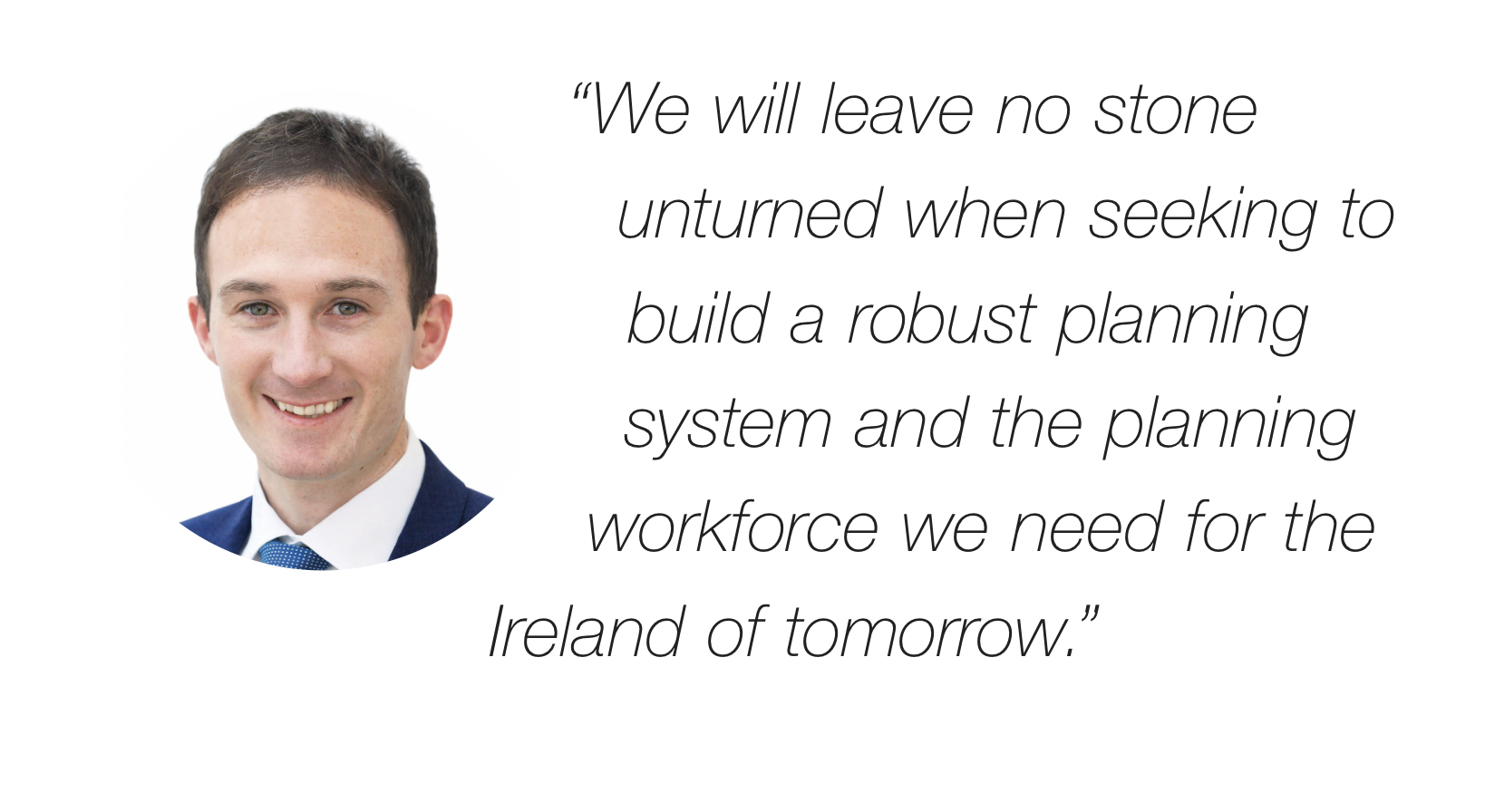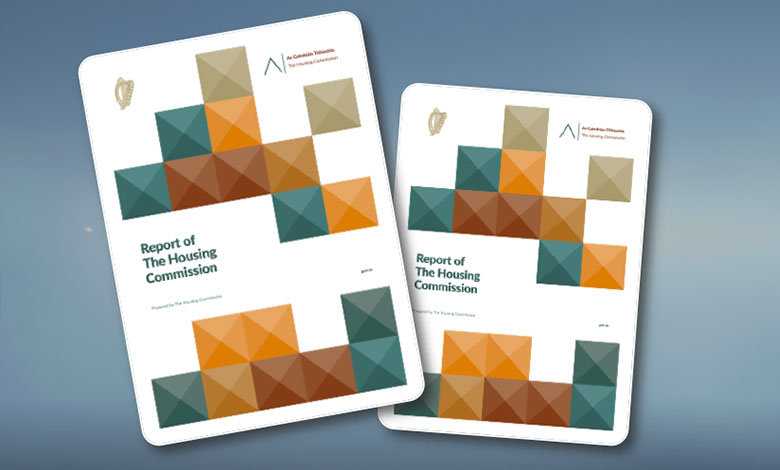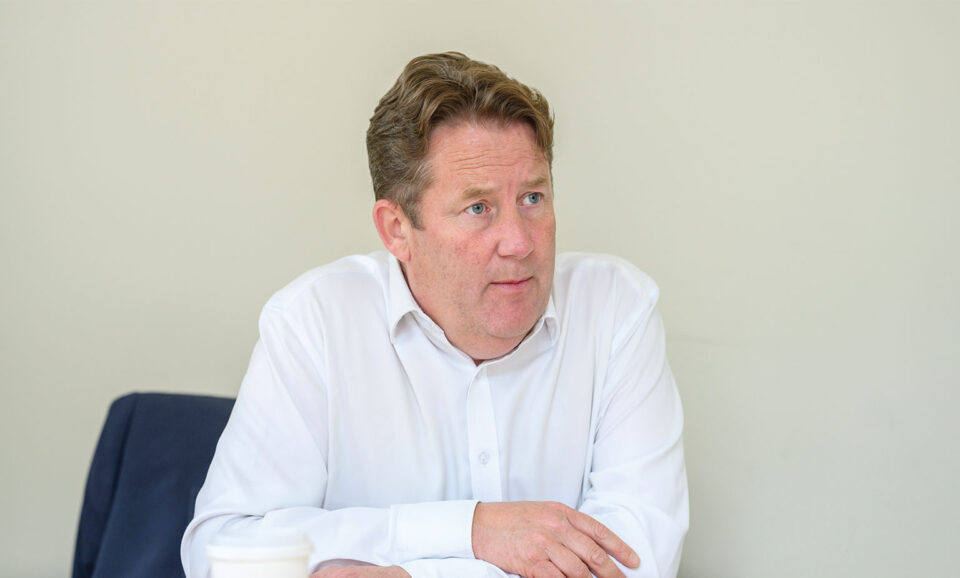
Ensuring the success of compact development in Ireland: Research by The Housing Agency
7th November 2024
New planning validation checklists for local authorities
22nd November 2024Minister of State Alan Dillon TD: Transforming Ireland’s planning system

Never before have we been at such a crucial juncture in terms of planning and infrastructure in Ireland, writes Alan Dillon TD, Minister of State for Local Government and Planning at the Department of Housing, Local Government and Heritage.
The first draft revision of the National Planning Framework (NPF) since it was published in 2018, and the recent signing by President Higgins on 17 October 2024 of the landmark Planning and Development Act 2024, mark a pivotal moment in our collective efforts to ensure we have a planning system that is fit for purpose, both now and into the future.
The planning system is significant to nearly every aspect of people’s lives, from housing delivery to critical infrastructure and to future proofing our country to meet the complex economic, demographic, climate, and environmental changes which are already in train.
The new Planning and Development Act 2024 will introduce a number of key reforms to the system, to include greater mandatory alignment of all aspects of planning from both a policy and legislative perspective; improvements to the planning judicial review processes; clearer, more consistent policies and guidance and – longer term – more strategic, 10-year development plans for local authorities and the creation of urban development zones, which will facilitate a more plan-led approach to development and increase certainty at the master-planning stage.
Ultimately, the new legislation provides clarity, consistency and certainty for all users and planning system which matches our strong ambitions for housing delivery, climate action, and critical infrastructure over the coming decades. Arrangements are being put in place to commence the Act on a phased basis to allow for the smooth operational transition of this legislation across the planning system.
In tandem, a well-resourced, sustainable, and robust planning system is critically important to support this transformation and to meet the requirements on the system that have grown in recent years and my department is actively working with key stakeholders, including An Bord Pleanála (the Board) and our local planning authorities, to ensure they have the staff and resources to underpin this transformation.
In January 2024, the Government appointed Peter Mullan as the Chairperson of An Bord Pleanála for a seven-year term. Furthermore, nine new full term board members have been appointed to date, bringing the current board membership to 17, with a mixture of full-term and temporary members.
These new full-term board members, bring to the board a vast range of experience throughout both the public and private sector in a range of disciplines including in planning, architecture, environment, corporate services, local government, governance, and legal affairs.
Critically, there are now more professionals working at the Board than at any time previously. When all approved posts are filled, over 300 people will be employed, representing an increase in excess of 50 per cent since before 2021.
At a local level, my department, in conjunction with the local government sector, is actively working on a programme of support to increase staffing levels, on a phased basis, across the sector. In October 2023, funding was made available for 101 new posts across the 31 local planning authorities under phase one of the programme. A second phase of the programme is being advanced to provide further additionality to the sector.

Significantly, in recognition of the increasing demands on the planning system and the need to ensure present and future staffing needs can be met, Minister Darragh O’ Brien TD and I published a Ministerial Action Plan on Planning Resources on 15 October 2024. We are committed to ensuring that we have a planning system that can deliver on our priorities in the years ahead and this action plan is another vital piece in the jigsaw that will ensure that we can fully deliver on investment and decision-making in key areas such as housing, climate action, and critical infrastructure.
The Action Plan is rooted in a cross-sectoral response to help to ensure that Ireland’s planning system is fighting fit for the future. Developed in close partnership with the sector including local authorities, the Board, the Office of the Planning Regulator, as well as wider stakeholders; the Action Plan sets out 14 high-level actions that provide a coordinated approach to ensuring a sustainable pipeline of planning and related expertise to deliver on our priorities in the years ahead.
Specifically, the Action Plan addresses the educational pathways to becoming a professional planner with consideration of traditional and new educational pathways. It looks at initiatives relating to recruitment (domestic and international), training, and staff development with the aim of building capacity and resilience within the planning system overall, and considers also measures to encourage greater innovation and improve efficiency across the system. Focusing on the needs of the public sector in the first instance, the plan also takes into account the needs of a growing private sector that is critical to the operation of the system.
My department will shortly be establishing a series of working groups to progress grouped actions of the plan on a priority basis.
Whether it is creating more avenues for professional training, enticing Irish professionals abroad to return home, or making planning a more attractive career option, we will leave no stone unturned when seeking to build a robust planning system and the planning workforce we need for the Ireland of tomorrow.






